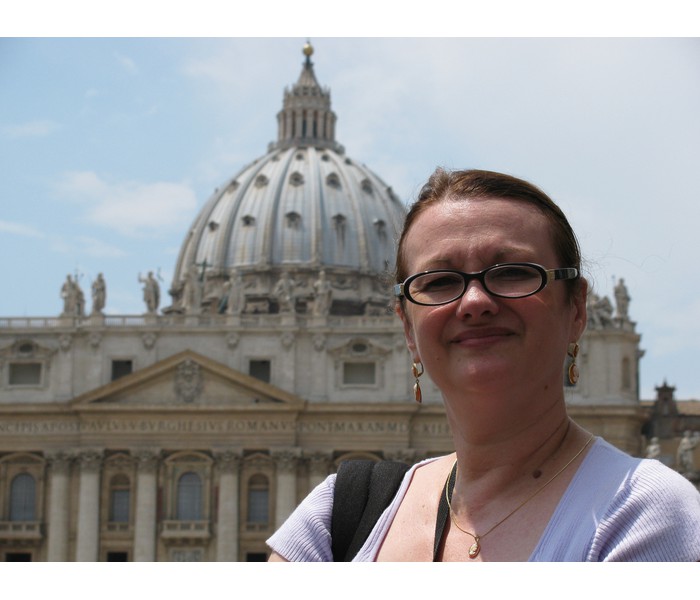How I learned English Fast – an Alumni Poem!
April 19, 2019

Biljana D. Obradović (November 24, 2001, New Orleans)
How I Learned English Fast
“till distance grows in my head
like an antique armada
dangled motionless from the horizon”
–from Amiri Baraka’s “Ostriches & Grandmothers”
One of the first words I learned
was “armada” in Mrs. Gregoriadis’
class at Pinewood, the American school
on Panorama, the hill above
Thessaloniki. You know the city which
St. Paul visited in Macedonia (see
Thessalonians in the Bible). I had to use it in a
sentence which would explain its meaning,
but since it’s used so rarely it wasn’t
even in my standard 10,000 words
English—Serbo-Croatian Dictionary. I don’t know
how I completed the assignment,
but I know I didn’t do too well.
And I cried in front of the whole
fifth grade class, in front of all
Those American and Greek-American
kids who figured out my initials
could stand for body odour
or backwards OB tampons—when
we were yet too young to even know
what those were used for, or
when they called me “daddy
long legs” as I was the tallest in
the class. In the same class
one day we were asked the usual
question, “What do you want to become
when you grow up?” and the only
word I knew was the same in
English as in my language, “Doctor,”
so I stood up when called upon
and replied as I cried again, “Doctor!” but
couldn’t explain that I hate seeing blood,
that my arm becomes all blue and
bruised when I have my blood
drawn out, and that I almost faint—
becoming a doctor was the last
thing on my mind. Maybe a ballerina or an architect?
Today, thirty years later I
realize that I’m still a little
traumatized by how fast I had
to learn English to speak my mind.
I am a Doctor, not the blood
kind, but a Doctor of Philosophy
in English. I know what
OB tampons are used for and use them once
a month, and every day I use fragrant
deodorants lest someone think
of calling me BO again.
Unfortunately, I’ve also learned that
“armada” isn’t a word that just refers
to the historic Spanish Armada, but
that it was used against the Iraqis,
then against the Serbs to dismember my country,
to bomb it into submission—not from
ships, but with planes from ships, or from land
bases. Not one American or NATO soldier
died, and the NATO armada won.
We lost our Kosovo, a whole province,
I—a mother and father, a home to go back to.
Why did I learn these words
of hatred, these English words that pain me?
I’m tired of defending myself—
I’m tired of being multinational,
international, multicultural…
and please don’t be polite, and tell me
how pretty my name is,
when you’ve never heard it before,
and if I could learn this language
try to, at least pronounce it correctly.
Your assignment for tomorrow
is to find the meaning of five Serbian words
then use them in sentences explaining
their meanings. You will be called on.
The words are: mržnja (hatred), ljubav (love),
prijateljstvo (friendship) , rat (war),
and izgubljeno detinjstvo (lost childhood).
Remember that “my own
dead souls, my so called
people, [Serbia]
is a foreign place. [I am]
as any other sad [woman] here
american (Baraka, “Notes for a Speech”).


